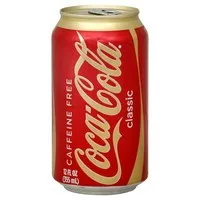

Still, these drinks are liquids, so it’s natural to wonder whether, like other beverages, an occasional soft drink will help hydrate you. While causation has not yet been established, it’s at least a reason to reconsider any soda habit, whether it's diet or regular.
CAFFEINE FREE COKE FULL
More people are turning to diet soda, perhaps because they consider it to be a healthier alternative: A full 59 percent of Americans report drinking diet soft drinks regularly, according to the University of Texas at Austin - despite the results of several studies showing that regular diet soda consumption may be associated with increased body weight and blood sugar levels. That equates to an average of 145 calories each day from these drinks, most of it from sugar. The number of adults considered “heavy consumers” of soda - defined as those who guzzle more than 500 calories of soda a day - shrank by 4 percent between 20, while the percentage among children fell by twice that much, according to research published in September 2020 in the Journal of the Academy of Nutrition and Dietetics.īut nearly half of Americans still drink at least one sugar-sweetened beverage a day, according to the most recent data from the Centers for Disease Control and Prevention (CDC). So it’s a relief to learn that Americans are finally consuming less of the sweet fizzy stuff.

In fact, Harvard ranks soda among the very worst drinks for human health and recommends that people limit their consumption as much as possible.

Sugar-sweetened beverages, including soda, have been linked to an increased risk of obesity, type 2 diabetes, heart disease, and early death, according to the Harvard T.H. The news about soda hasn’t been good for a while.


 0 kommentar(er)
0 kommentar(er)
